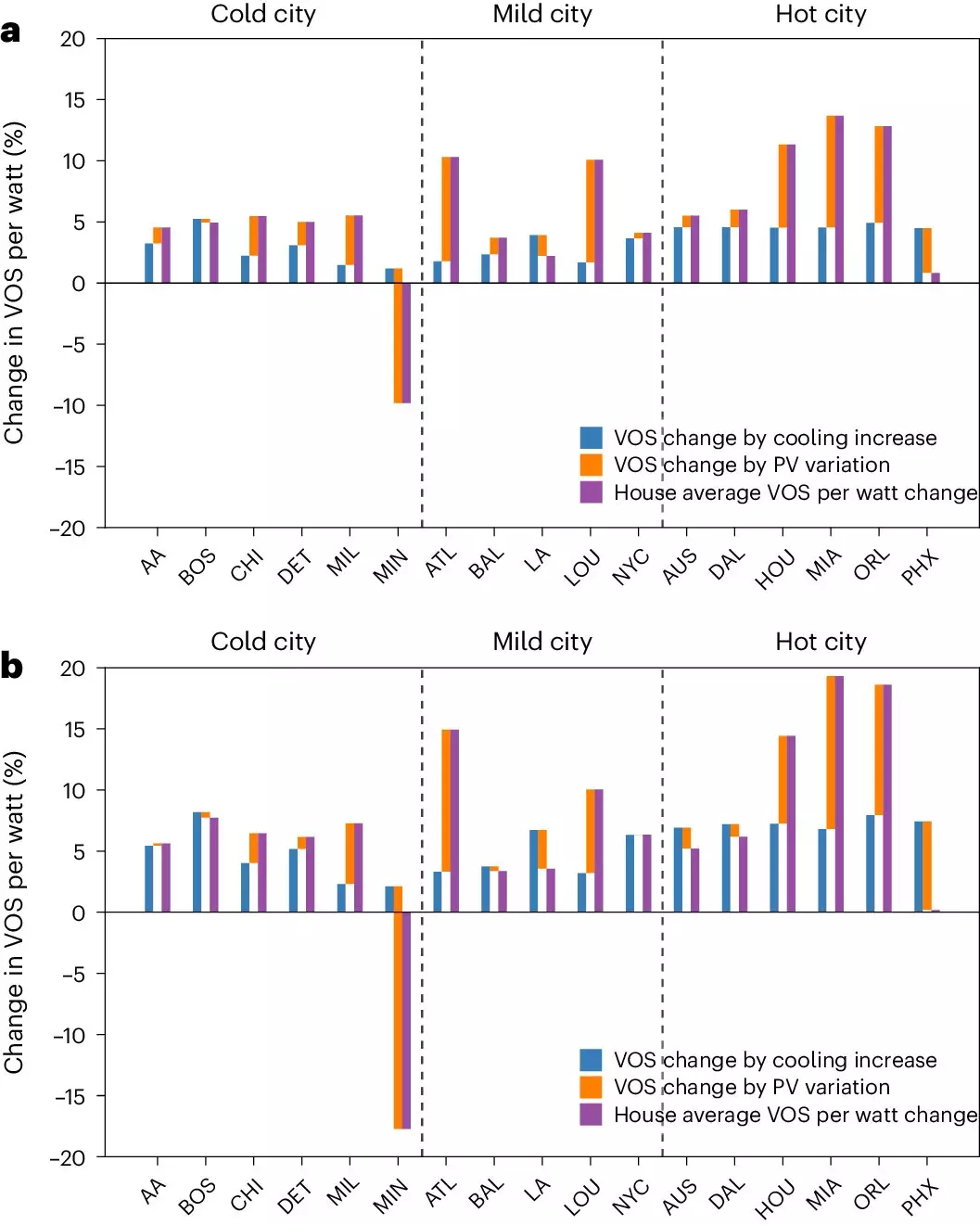One of the key takeaways from a recent study led by the University of Michigan is that climate change will significantly increase the future value of residential rooftop solar panels across the United States. The study defines the value of solar (VOS) as the financial benefits at the household level from electricity bill savings coupled with revenues from excess electricity sold to the grid, minus the initial installation costs. By the end of the century, households could potentially see up to a 19% increase in the value of their solar panels, equating to hundreds of dollars in additional earnings annually.
The rise in the value of rooftop solar systems can be attributed to two primary factors: increased demand for residential air-conditioning as the climate warms and future solar-panel performance in response to climate change. The study conducted by Michael Craig and his colleagues analyzed data from 2,000 households in 17 U.S. cities using a moderate climate-warming scenario. They found that the value of rooftop solar panels increased in nearly all cities, with Miami experiencing the largest increase and only Minneapolis seeing a decrease in financial benefits due to rooftop solar.
As temperatures rise, the demand for residential space cooling is expected to increase across all the cities studied. This increase is projected to be around 35% by mid-century and 64% by the end of the century. With more energy being consumed for cooling purposes, a greater proportion of solar-generated electricity will be used domestically rather than being sold back to the grid. This shift benefits owners of rooftop solar systems, as it allows them to consume the power generated by their panels at the full retail cost of electricity.
Another crucial factor affecting the future value of residential rooftop photovoltaics is solar-panel performance. Solar panels operate best in cool, sunny conditions, and as temperatures or cloud cover increase, the electricity generated by these panels decreases. The study showed that cities like Ann Arbor, Austin, Chicago, Dallas, Detroit, Houston, Louisville, and Milwaukee might see a decline in panel efficiency due to rising temperatures. Conversely, reduced cloud cover could lead to an increase in sunlight reaching panels, thereby balancing out the impact on solar-panel performance.
While future financial gains from rooftop solar panels are likely to benefit households that can afford to install them, there are various programs in place to enhance accessibility and ensure a more equitable distribution of benefits. Initiatives that offset the costs of solar installations make it more accessible to lower-income individuals. Governments can also install rooftop solar on public buildings, like subsidized housing, covering the capital costs while providing solar benefits to tenants. Community solar programs offer benefits to entire communities, including households that may not have the means or ability to install rooftop solar themselves.
The future value of residential rooftop solar panels in the face of climate change presents both challenges and opportunities. As demand for air-conditioning increases and solar-panel performance responds to changing weather conditions, households across the United States stand to benefit financially from investing in solar technology. By raising public awareness of these future value propositions, greater adoption of solar energy can be encouraged, ultimately contributing to efforts to decarbonize the power-generation system. It is crucial to continue exploring ways to make solar energy more accessible and inclusive, ensuring that the benefits of this renewable energy source are widely shared across communities.


Leave a Reply